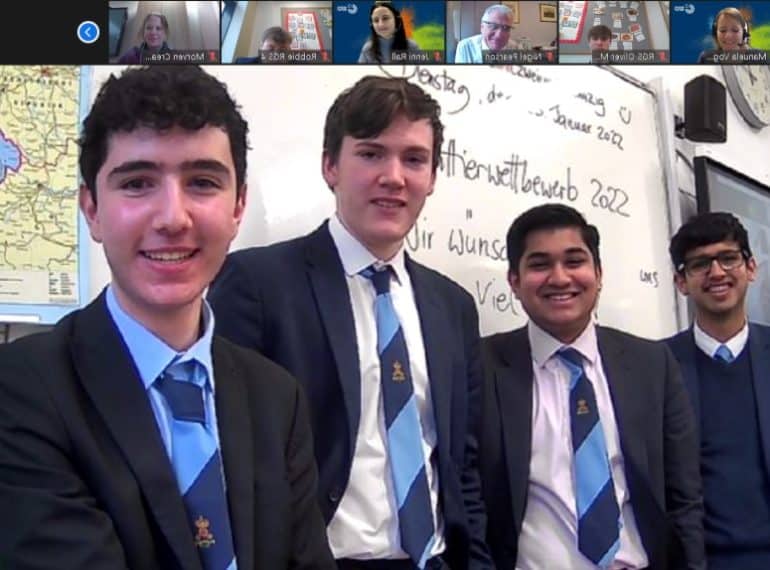
Four Year 12 linguists have reached the next stage of a prestigious German debating competition after enjoying success in two early rounds.
Two of the four also appeared in a French competition, where the QE contingent won multiple debates against fierce opposition from sixth-formers from other schools, many of whom were older.
The next stage of the German competition – organised by the Goethe Institut, the Federal Republic of Germany’s highly respected cultural organisation – will be hosted by QE early next month, with the finals taking place at the Institut’s London headquarters at the end of March.
Head of Languages Nora Schlatte said: “I pay tribute to these dedicated and talented debating teams. I especially congratulate our German students: their progress in the Goethe Institut competition is a well-deserved result of the hard work, commitment and sheer linguistic ability they brought to two very different online debates.”
Towards the end of the Autumn Term, A-level German students Theo Mama-Kahn, Olly Salter, Ansh Jassra and Jai Patel beat Croydon’s Coloma Convent Girls’ School on the motion, School canteens should offer vegan and vegetarian food.
In the recent second round, the QE boys faced the Royal Grammar School Guildford. They were debating the motion The use of social media is harmful to the health of young people.
These first two rounds took place online, but QE has been asked to host the third round in person. Competitors will gather at the School on 3rd and 4th March.
Wishing the four boys well for the future rounds, Languages teacher Helen Shephard added: “Their spoken German is outstanding and their debating skills are second to none.”
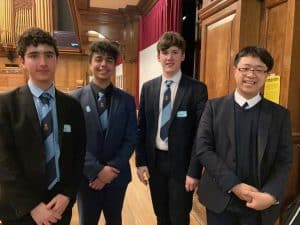 Still basking in their success, current School Captain Theo and classmate Olly were then joined by fellow Year 12 pupils Alan Yee Kin Kan and Antony Yassa for the French debating competition, which was held at St Paul’s Girls’ School.
Still basking in their success, current School Captain Theo and classmate Olly were then joined by fellow Year 12 pupils Alan Yee Kin Kan and Antony Yassa for the French debating competition, which was held at St Paul’s Girls’ School.
They found themselves competing against 24 other schools, mainly from the private sector, who fielded more than 30 teams.
The QE four were split into two teams, with each debating three motions. These covered very diverse topics: Korean pop music, the environment and politics. Both QE pairs won two of their three debates, often facing opponents who were already in Year 13.
“It takes a lot of confidence, preparation and an excellent standard of French to be able to participate so successfully in such an event, and we are very proud of these students!” added Ms Schlatte, who served as a judge at the competition, together with QE Languages Assistant Joelle Simpson.

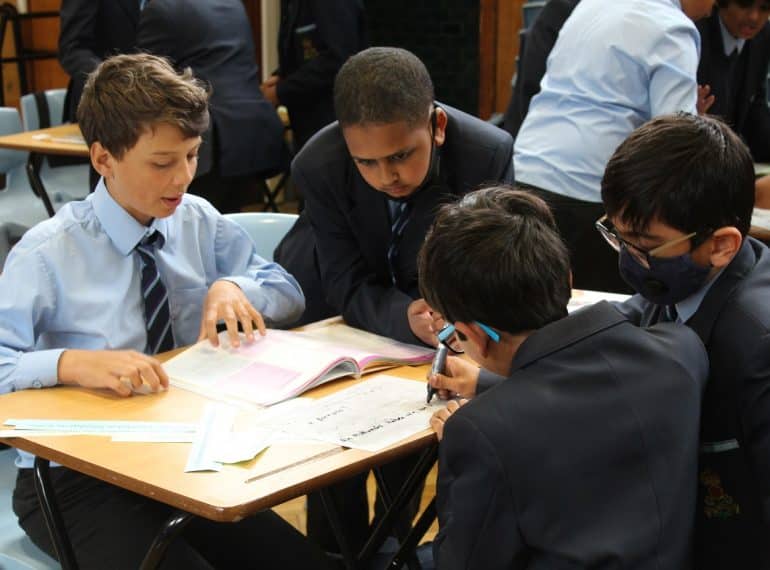
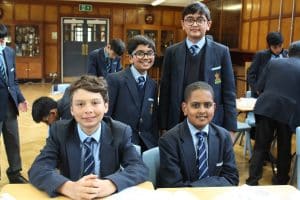 Each Year 7 form put forward a team made up of three or four boys. First place went to Pearce, with team members Ameen Elamin, Kyle Goldband, Tuhin Mitra and Nittant Moudgil scoring an emphatic victory.
Each Year 7 form put forward a team made up of three or four boys. First place went to Pearce, with team members Ameen Elamin, Kyle Goldband, Tuhin Mitra and Nittant Moudgil scoring an emphatic victory.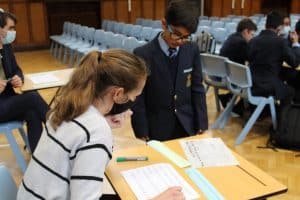 “They were allowed to use their text books to help, as the ‘vocab’ we used was taken from the Year 7 course, but the sentences were pitched to be extra-challenging, particularly in terms of grammatical structures.”
“They were allowed to use their text books to help, as the ‘vocab’ we used was taken from the Year 7 course, but the sentences were pitched to be extra-challenging, particularly in terms of grammatical structures.”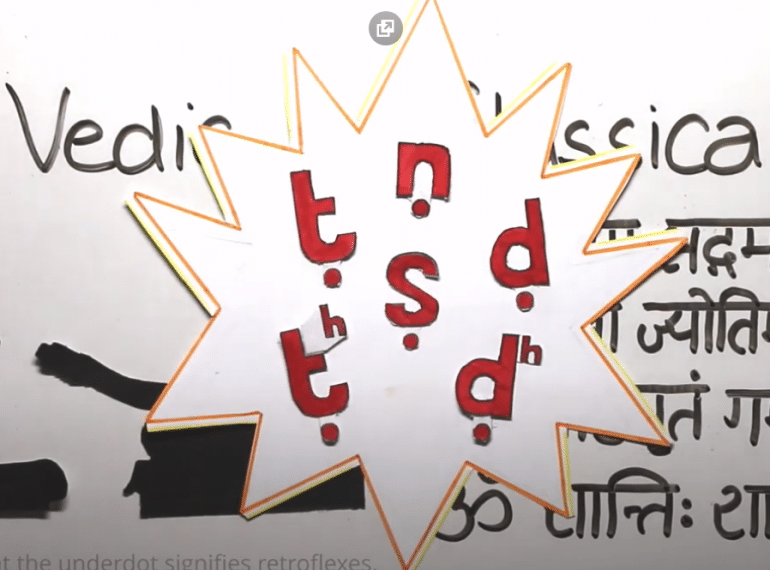
 The collective – a collaborative blog written and produced by Cambridge University linguists – awarded Vineeth joint first prize in the senior individual category for his closely argued seven-minute
The collective – a collaborative blog written and produced by Cambridge University linguists – awarded Vineeth joint first prize in the senior individual category for his closely argued seven-minute  Vineeth explored the various academic theories about the origins of these sounds and how they developed. He looked at why retroflexes are common across hundreds of different languages throughout the Indian sub-continent, yet are relatively rare in other parts of the world.
Vineeth explored the various academic theories about the origins of these sounds and how they developed. He looked at why retroflexes are common across hundreds of different languages throughout the Indian sub-continent, yet are relatively rare in other parts of the world. Vineesh concluded: “This is what is amazing about retroflexes: the profound impact that they have on the complex sociology of south Asia, spreading across the tongues of people from a diversity of cultures, religions and backgrounds in a way that nothing else possibly could….Retroflexes seem to bind all of south Asia together. Despite making us seem homogenous and often risible to the western world, [their] history can give us a glimpse into the complex interactions between diverse cultures thousands of years ago.”
Vineesh concluded: “This is what is amazing about retroflexes: the profound impact that they have on the complex sociology of south Asia, spreading across the tongues of people from a diversity of cultures, religions and backgrounds in a way that nothing else possibly could….Retroflexes seem to bind all of south Asia together. Despite making us seem homogenous and often risible to the western world, [their] history can give us a glimpse into the complex interactions between diverse cultures thousands of years ago.”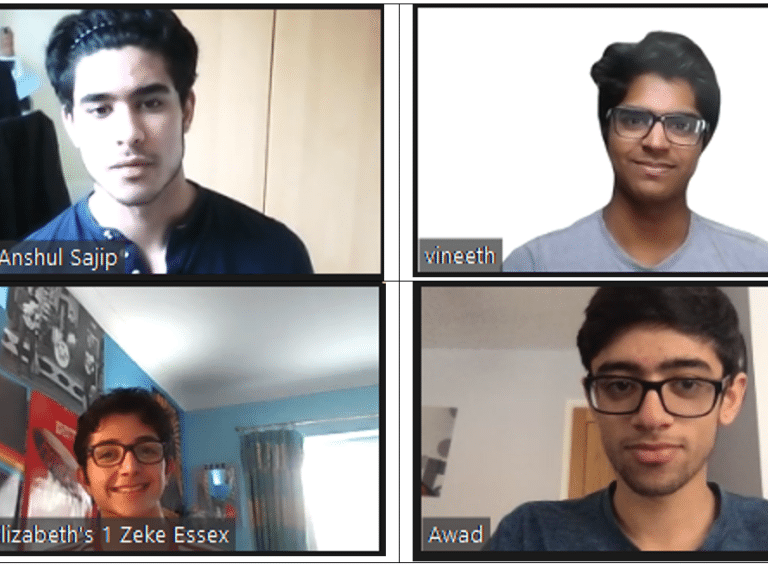
 QE’s Head of Languages, Nora Schlatte, was a member of the jury, and saw Vineeth and Awad in action. “Their research, poise and accuracy of language were amazing,” she said “Vineeth’s opening speech was described as ‘un modèle du genre’ [a model of its kind] and both boys responded very well to some challenging questions. Participating in something like this, especially remotely, is really daunting and they did brilliantly.”
QE’s Head of Languages, Nora Schlatte, was a member of the jury, and saw Vineeth and Awad in action. “Their research, poise and accuracy of language were amazing,” she said “Vineeth’s opening speech was described as ‘un modèle du genre’ [a model of its kind] and both boys responded very well to some challenging questions. Participating in something like this, especially remotely, is really daunting and they did brilliantly.”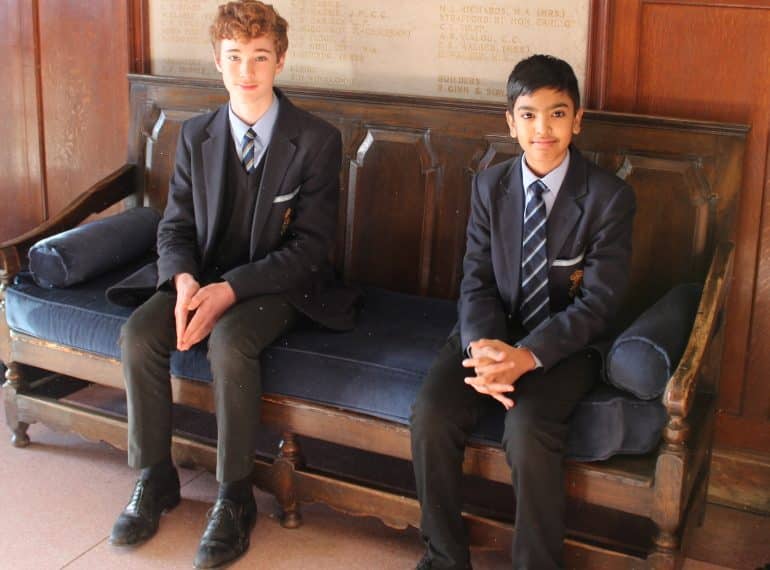
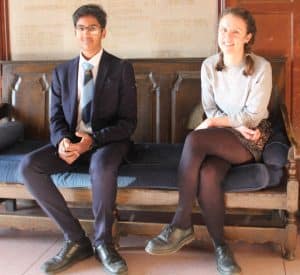 ives Matter movement.
ives Matter movement.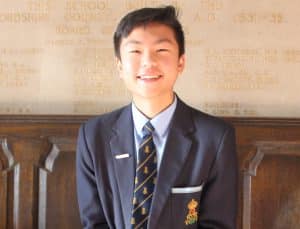 have jumbled-up words, but after rearranging them, the poem starts to make sense.
have jumbled-up words, but after rearranging them, the poem starts to make sense.
 Anthony was quoted by the
Anthony was quoted by the 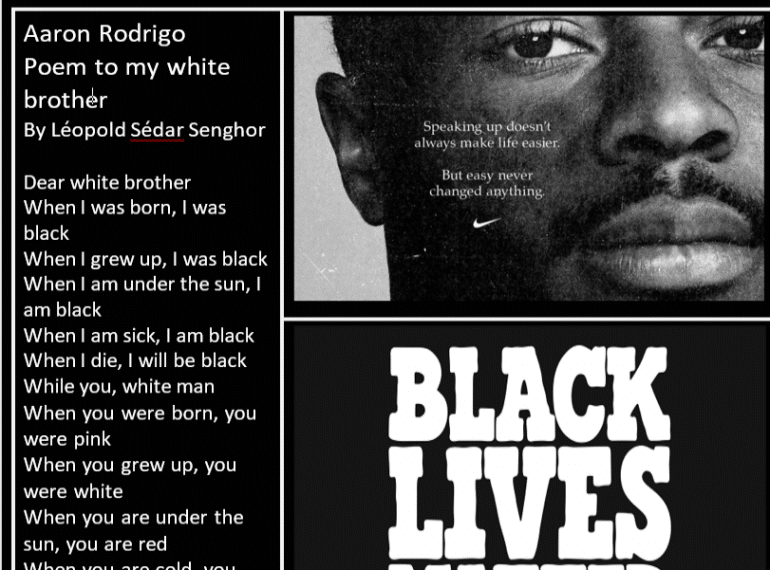
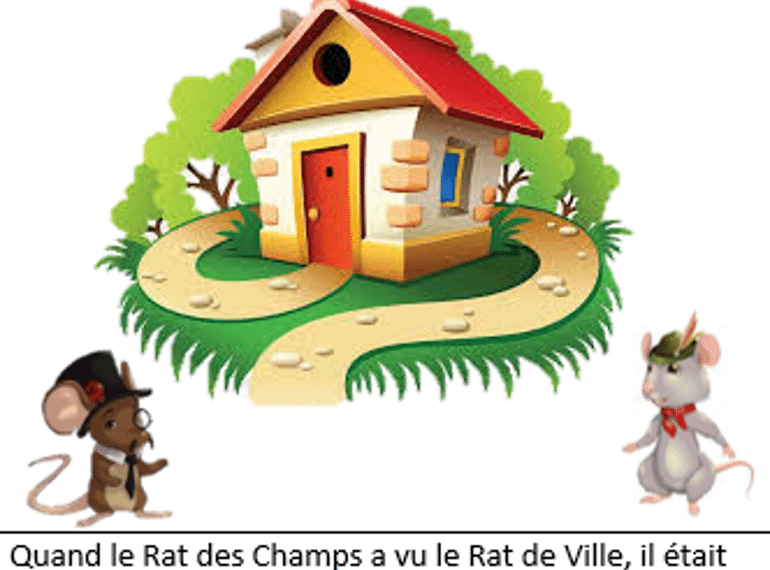
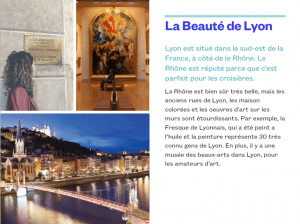 For both contests, boys had to show their mastery of written French or German, while a challenge set by Languages teacher Rosie Hall additionally gave Year 10 pupils the opportunity to display visual ability alongside their verbal skill.
For both contests, boys had to show their mastery of written French or German, while a challenge set by Languages teacher Rosie Hall additionally gave Year 10 pupils the opportunity to display visual ability alongside their verbal skill.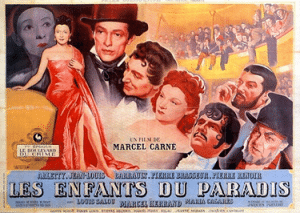 House points were awarded, with Pearce taking first place, followed by Broughton and then Underne.
House points were awarded, with Pearce taking first place, followed by Broughton and then Underne.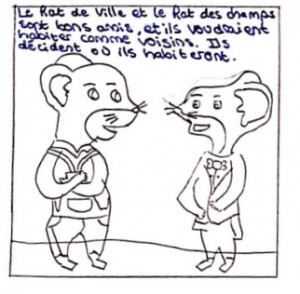 The boys watched some French cartoon clips and then were asked to create a comic strip or storyboard, re-imagining the story and using the vocabulary they learned to explain relative advantages and disadvantages of living in the town and the countryside.
The boys watched some French cartoon clips and then were asked to create a comic strip or storyboard, re-imagining the story and using the vocabulary they learned to explain relative advantages and disadvantages of living in the town and the countryside.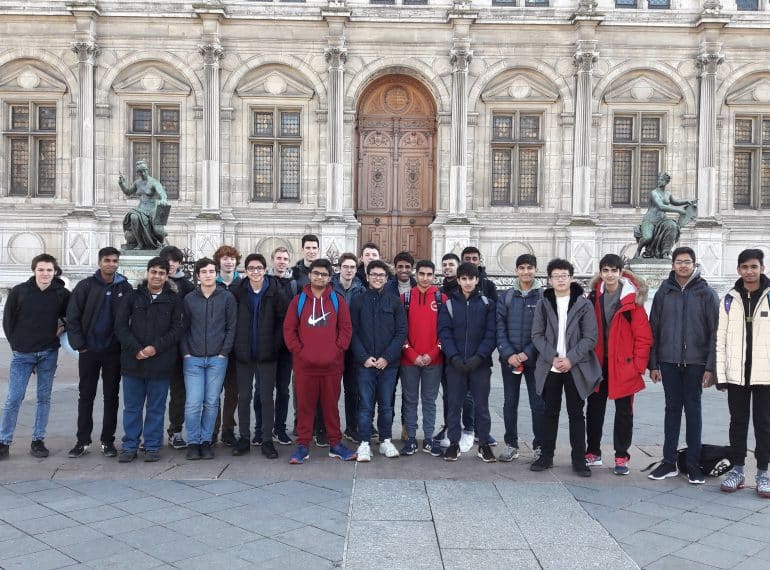
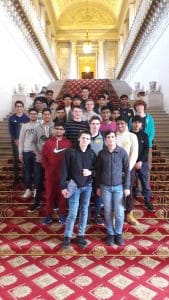 The Languages department runs a trip to the French capital every two years, ensuring that all boys can go to Paris at least once during their French A-level studies.
The Languages department runs a trip to the French capital every two years, ensuring that all boys can go to Paris at least once during their French A-level studies.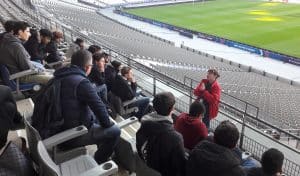 There was also a tour of the Stade de France, where the students were given access to the dressing rooms decorated for the Six Nations rugby tournament and enjoyed the opportunity to see strips belonging to several French football and rugby sporting heroes.
There was also a tour of the Stade de France, where the students were given access to the dressing rooms decorated for the Six Nations rugby tournament and enjoyed the opportunity to see strips belonging to several French football and rugby sporting heroes.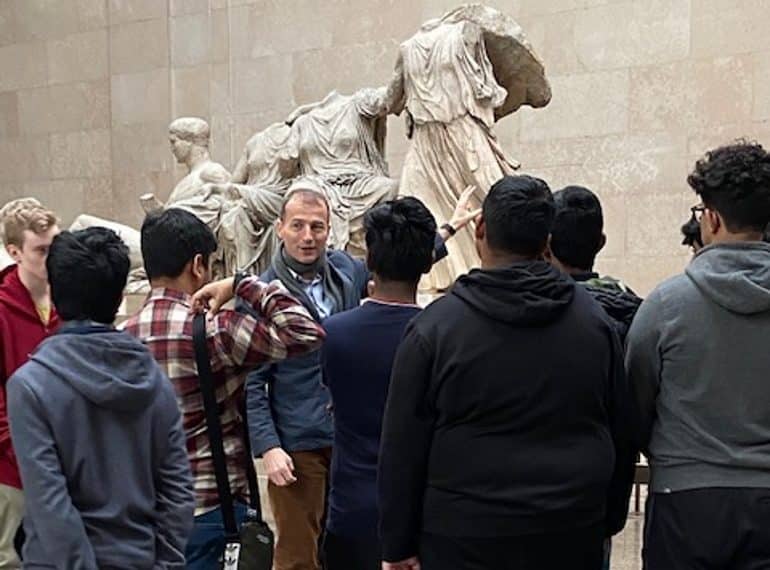
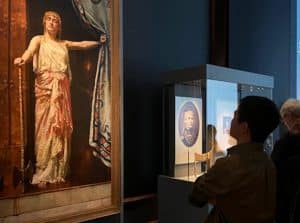 The 33 Year 11 boys taking Latin GCSE – the highest number since the subject was reintroduced at QE as a curriculum subject in 2012 – have been studying Troy as part of their set texts.
The 33 Year 11 boys taking Latin GCSE – the highest number since the subject was reintroduced at QE as a curriculum subject in 2012 – have been studying Troy as part of their set texts.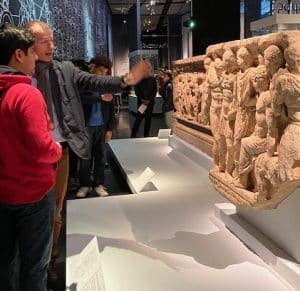 The exhibition, Troy: Myth and Reality, showcased art related to Troy and also examined the archaeological evidence demonstrating conclusively that the city actually existed.
The exhibition, Troy: Myth and Reality, showcased art related to Troy and also examined the archaeological evidence demonstrating conclusively that the city actually existed.